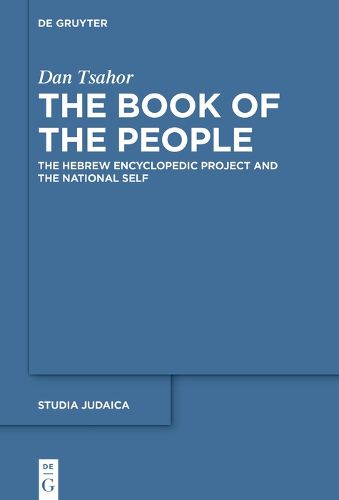Readings Newsletter
Become a Readings Member to make your shopping experience even easier.
Sign in or sign up for free!
You’re not far away from qualifying for FREE standard shipping within Australia
You’ve qualified for FREE standard shipping within Australia
The cart is loading…






This title is printed to order. This book may have been self-published. If so, we cannot guarantee the quality of the content. In the main most books will have gone through the editing process however some may not. We therefore suggest that you be aware of this before ordering this book. If in doubt check either the author or publisher’s details as we are unable to accept any returns unless they are faulty. Please contact us if you have any questions.
Hebrew encyclopedias have an intriguing history. The genre, which began as modest initiatives to disseminate general knowledge and strengthen literacy among Russian Jews, quickly became the most popular in modern Hebrew literature, with tens of thousands of subscribers to publications such as Encyclopaedia Hebraica and Encyclopaedia Biblica. The makers of these vast bodies of knowledge hoped to demonstrate Hebrew's mimetic power and the vitality of newly created Jewish research institutions. They also hoped that the encyclopedias would be an essential tool in shaping and reshaping Zionist national culture and nurturing an ideal national persona. Thus, the printed pages of the encyclopedias give us unique access to what Zionists were saying about themselves, how they perceived their neighbors, and what they were hoping for the future, thereby going beyond the official Zionists documents, newspaper articles, and the writings of intellectuals that have been used extensively by historians to narrate national consciousness. By bringing to the fore these unique texts, The Book of the People presents common perceptions of memory and collective identity that often do not fit with the narratives offered by historians of Zionism. In doing so, the book also exposes ethical codes that regulated the production of Zionist knowledge and endowed the encyclopedias with a rare status as a bona fide source for truths by people from diverse political and social backgrounds.
$9.00 standard shipping within Australia
FREE standard shipping within Australia for orders over $100.00
Express & International shipping calculated at checkout
This title is printed to order. This book may have been self-published. If so, we cannot guarantee the quality of the content. In the main most books will have gone through the editing process however some may not. We therefore suggest that you be aware of this before ordering this book. If in doubt check either the author or publisher’s details as we are unable to accept any returns unless they are faulty. Please contact us if you have any questions.
Hebrew encyclopedias have an intriguing history. The genre, which began as modest initiatives to disseminate general knowledge and strengthen literacy among Russian Jews, quickly became the most popular in modern Hebrew literature, with tens of thousands of subscribers to publications such as Encyclopaedia Hebraica and Encyclopaedia Biblica. The makers of these vast bodies of knowledge hoped to demonstrate Hebrew's mimetic power and the vitality of newly created Jewish research institutions. They also hoped that the encyclopedias would be an essential tool in shaping and reshaping Zionist national culture and nurturing an ideal national persona. Thus, the printed pages of the encyclopedias give us unique access to what Zionists were saying about themselves, how they perceived their neighbors, and what they were hoping for the future, thereby going beyond the official Zionists documents, newspaper articles, and the writings of intellectuals that have been used extensively by historians to narrate national consciousness. By bringing to the fore these unique texts, The Book of the People presents common perceptions of memory and collective identity that often do not fit with the narratives offered by historians of Zionism. In doing so, the book also exposes ethical codes that regulated the production of Zionist knowledge and endowed the encyclopedias with a rare status as a bona fide source for truths by people from diverse political and social backgrounds.